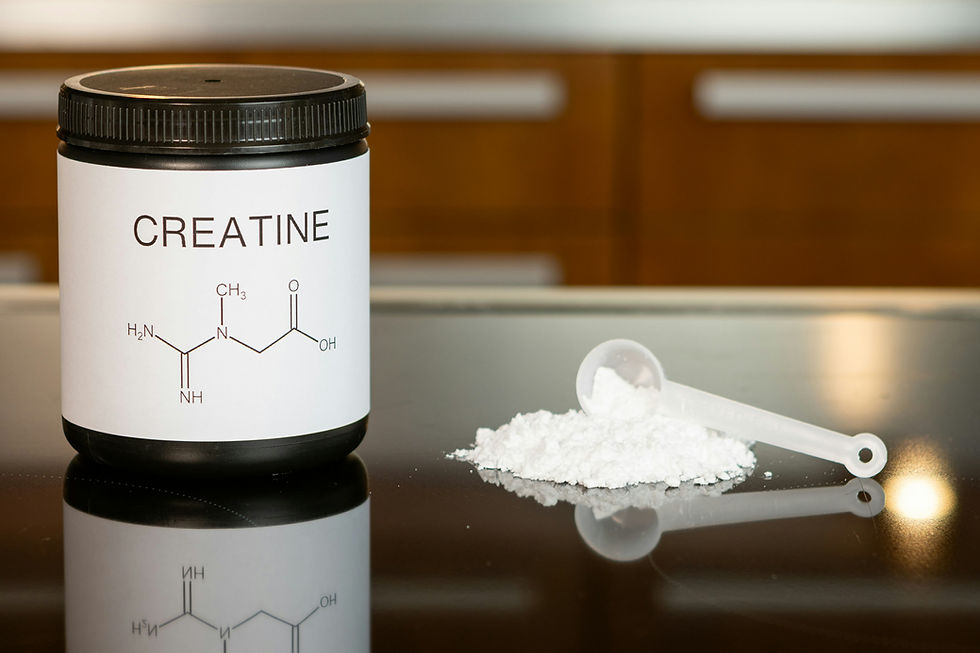Creatine supplementation: not just for athletes.
- Amanda Heading
- Jul 28, 2025
- 2 min read

If you think that taking creatine is just for body builders and power athletes, you may need a rethink...
The benefits of creatine extend to helping offset muscle loss through ageing (1, 2) (sarcopenia), which is vital to help support bones and joints, mitigate the effects of osteoarthritis and osteoporosis, and help avoid falls leading to fractures. It can also play a role in muscle preservation in peri- and postmenopausal women.
If we have more muscle, we also have more insulin receptors in the muscles themselves, so better blood sugar regulation (3). And having more muscle gives us a better body composition ratio, compared to fat. Creatine can also be helpful for those on weight-loss injections going to the gym for resistance exercise (4), to help mitigate muscle loss and strengthen their bones (two key side effects of the weight-loss jabs, see HERE for more info).
Creatine helps with energy regulation and also has an anti-inflammatory role in the body too (4). However, there's exciting, emerging evidence of its role in helping with brain health, neuroprotection (5) and mood regulation (6).
Creatine is a natural source of energy for muscle contraction and organ function (7). Your body produces creatine in your liver, kidneys and pancreas, delivering approximately 95% to your skeletal muscles during training/physical activity. The remaining 5% goes to your brain, heart and other tissues.
Our diet can provide about half our creatine needs (1-2g per day); best sources are from red meat, seafood and animal-derived milk. If you choose to supplement your diet with additional creatine, the best form is creatine monohydrate, taken as a powder, mixed into drinks and foods.
Whilst creatine supplementation is generally safe and well tolerated by most people (8), each individual must check it's both safe and appropriate to use it, due to the possible interactions with medications (this is the case with all supplements). There are also some medical conditions for which creatine supplementation is not safe (including liver and kidney issues, diabetes and bipolar disorder), so please check with your GP, medical advisor or nutritional therapist.
If you'd like more info which is quick and easy to read, here are two helpful links:
Further information, evidence and sources are here:



